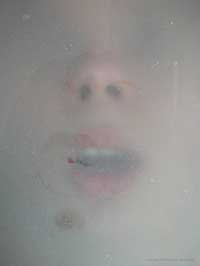Japanese man survives 3-week 'hibernation,' doctors say
A man who went missing in western Japan survived in wintry weather without food and water for over three weeks by falling into a state of "hibernation," doctors said.

Mitsutaka Uchikoshi had almost no pulse, his organs had all but shut down and his body temperature was a chilly 22 degrees Celsius (71 degrees Fahrenheit) when he was discovered on Rokko mountain in late October, 24 days after he went missing in the area, according to doctors who treated him at the nearby Kobe City General Hospital.
"On the second day, the sun was out, I was in a field, and I felt very comfortable. That's my last memory," Uchikoshi, 35, told reporters Tuesday before returning home from the hospital. "I must have fallen asleep after that."
Doctors believe Uchikoshi, a city official from neighboring Nishinomiya who was visiting the mountain for a barbecue party, tripped and later lost consciousness in a remote mountainous area.
His body temperature is thought to have plunged as he lay in frosty weather of about 10 C (50 F), greatly slowing down his metabolism.
"(Uchikoshi) fell into a state similar to hibernation and many of his organs slowed, but his brain was protected," said Dr. Shinichi Sato, head of the hospital's emergency unit. "I believe his brain capacity has recovered 100 percent."
Uchikoshi was treated for severe hypothermia, multiple organ failure and blood loss from his fall, but was unlikely to experience any lasting ill effects, Sato said.
Doctors were still uncertain of how exactly Uchikoshi survived for weeks with his metabolism apparently almost at a standstill.
"This case is revolutionary, if the patient truly survived at such a low body temperature over such a long period of time," said Hirohito Shiomi, a professor who studies hibernation at Fukuyama University's Faculty of Pharmacy and Pharmaceutical Sciences in Hiroshima, reports AP.
"Researchers would have to clarify whether Uchikoshi's body temperature dropped very quickly, or whether he started losing body heat much later and was in fact dying when rescuers found him," he said.
Scientists have long said human hibernation is theoretically possible, and could potentially be put to use to slow cell death when treating brain hemorrhaging and other fatal conditions.
In 2004, a German research team said lemurs had been discovered in Madagascar that hibernate for many months of the year, offering what they claimed was the first proof of hibernation in primates.
Subscribe to Pravda.Ru Telegram channel, Facebook, RSS!





